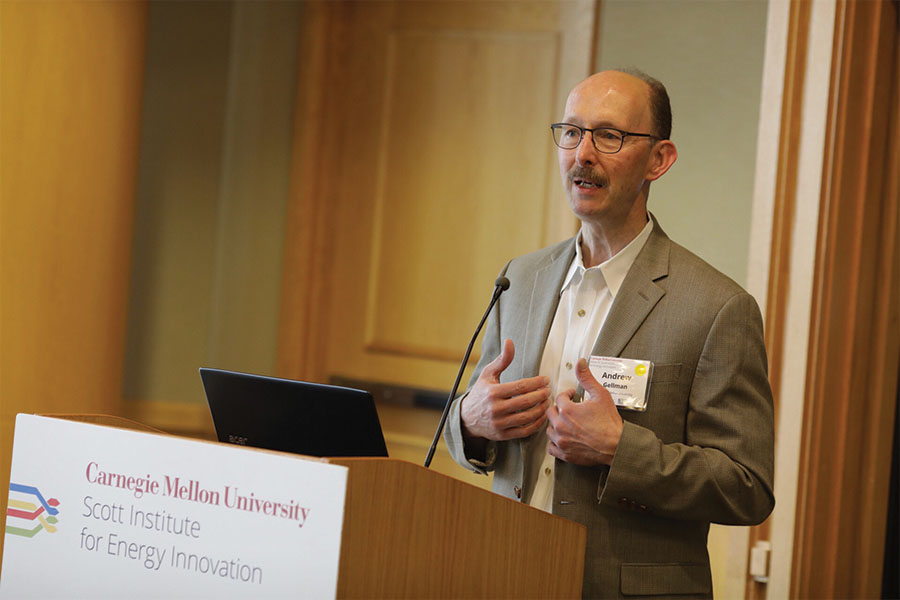
Scott Institute and DOE-NETL Hold Collaborative Subsurface Workshop
By Cody Januszko
Media Inquiries- Communications Analyst
On July 17 and 18, the Wilton E. Scott Institute for Energy Innovation at Carnegie Mellon University, in partnership with the U.S. Department of Energy’s (DOE's) National Energy Technology Laboratory (NETL), hosted a workshop focused on real-time decision-making for the Earth's subsurface.
The subsurface refers to the layers beneath the earth’s surface. The workshop aimed to identify the technology and data needs and capabilities required to rapidly analyze subsurface data to aid in developing real-time decision-making tools. Machine learning and data analytics played a large role in the event’s discussions and will be important in the advancements to come. Carnegie Mellon and NETL will release a public report detailing identified research gaps, challenges and recommendations.
The workshop kicked off with opening remarks from NETL and CMU leadership including Andrew Gellman, co-director of the Scott Institute for Energy Innovation and Lord Professor of Chemical Engineering, who welcomed over 60 participants to CMU.
Ramayya Krishnan, dean of the Heinz College of Information Systems and Public Policy and the William W. and Ruth F. Cooper professor of Management Science and Information Systems, touched on how the Heinz College’s expertise in data analytics and CMU’s expertise in machine learning were directly aligned with the workshop.
“The kinds of connections without boundaries across disciplines that comes to mind with the subsurface is synergistic with the values and efforts of CMU,” Krishnan said.
Steven Winberg, assistant secretary for Fossil Energy at the DOE, told attendees that the department’s fossil energy program focuses largely on efficiency, and that marrying fossil energy with big data would greatly increase efficiency—citing academia as an important resource for moving forward.
“We want to partner with academia and industry,” Winberg said. “Breaking down silos and working collaboratively is what I’ve been tasked to do at the DOE.”
Randall Gentry, deputy director and chief research officer at NETL, reinforced what Winberg said about the power of combining big data with fossil fuels, and Jay Whitacre, director of the Scott Institute and Trustee Professor in Energy in the Departments of Engineering and Public Policy and Materials Science and Engineering, concluded the welcome session, thanking those who planned the event and expressing that the Scott Institute’s goal is to hold more collaborative discussions like this in the future.
After the welcome, there were primer presentations to familiarize attendees with terminology and case study descriptions to showcase some of the work being done in the field. The participants then split into three focus groups on resource recovery and reservoir management, autonomous monitoring systems and induced seismicity, respectively.
These groups gathered together at the end of both days to share the results of their discussions and to gather the information to be released in the public report on the workshop outcomes.
Photo: The workshop kicked off with opening remarks from NETL and CMU leadership including Andrew Gellman, co-director of the Scott Institute for Energy Innovation and Lord Professor of Chemical Engineering, who welcomed over 60 participants to CMU.